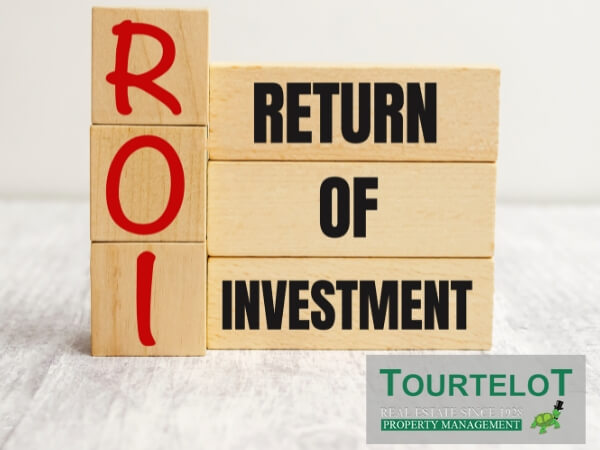
Are you looking to make the most of your real estate investment properties? Understanding how to calculate ROI (return on investment) on rental property is essential for property management in St. Petersburg.
A good ROI is the hallmark of a successful investment, ensuring that your monthly cash flow is strong and that your investment properties are financially sound. In this comprehensive guide, we'll walk you through the ins and outs of calculating the ROI for a rental property, providing you with the knowledge you need to thrive in the world of real estate investment.
The Importance of ROI for a Rental Property
ROI is a key metric for real estate investors and property management professionals alike. It helps you assess the profitability and performance of your investment properties. A strong ROI not only yields consistent monthly cash flow but also positions your investment properties as long-term assets. In essence, ROI is the measure of how effectively your real estate investment is generating returns in comparison to the total investment you've made.
Key Components of ROI Calculation
To calculate the ROI for a rental property, you need to consider several critical components. These include:
1. Net Operating Income (NOI)
Net operating income is the rental income minus the operating expenses of your property. It's a fundamental metric for calculating ROI and is essential for understanding the profitability of your investment properties. It includes rental income but also accounts for expenses such as property management fees, property taxes, insurance, and maintenance costs.
2. Total Investment
The total investment encompasses all the costs associated with purchasing and owning the rental property. This includes the purchase price, closing costs, any renovation or repair expenses, and the mortgage payment if you financed the property. Keep in mind that the financing method (e.g., cash purchase or mortgage) can significantly impact your total investment.
3. Capitalization Rate (Cap Rate)
The capitalization rate is another critical component of ROI calculations. It's a measure of the property's potential to generate income. The cap rate is calculated by dividing the property's NOI by the purchase price. A higher cap rate indicates a potentially better ROI.
4. Cash on Cash Return
Cash on Cash Return assesses the ROI for a rental property based on the actual cash invested. To calculate this, divide the annual cash flow by the total cash investment. The cash flow includes the net operating income minus mortgage payments, if applicable.
Step-by-Step Guide to Calculating ROI
Now, let's dive into the nitty-gritty of how to calculate ROI on a rental property:
Step 1: Determine Net Operating Income (NOI)
- Start by adding up all your rental income, including monthly rent from tenants.
- Subtract your operating expenses, such as property management fees, taxes, insurance, and maintenance costs. This gives you the NOI.
Step 2: Calculate the Total Investment
- Include the purchase price of the property and any closing costs.
- Add expenses for renovations, repairs, and upgrades.
- If you financed the property with a mortgage, consider the mortgage payment as part of your total investment.
Step 3: Find the Capitalization Rate (Cap Rate)
- Divide the property's NOI by the purchase price to calculate the cap rate.
- For example, if your NOI is $20,000 and the purchase price is $250,000, your cap rate would be 0.08, or 8%.
Step 4: Calculate Cash on Cash Return
- Divide the annual cash flow by the total cash investment.
- Annual cash flow includes the NOI minus mortgage payments, if applicable.
The Significance of ROI in Real Estate Investing
Understanding ROI is crucial for making informed decisions in the world of real estate investing. It allows you to evaluate the performance of your investment properties and identify which properties are generating the best returns. By calculating ROI for each property, you can make informed decisions about which investments to hold, which to sell, and where to allocate additional capital for further growth.
Real Estate Investment Trusts (REITs)
It's worth noting that real estate investors have another option in the form of real estate investment trusts (REITs). They can offer competitive ROI opportunities while minimizing the hands-on involvement typically required in property management.
In conclusion, understanding how to calculate ROI on rental property is a fundamental skill for property owners, real estate investors, and property managers. By considering factors like net operating income, total investment, cap rate, and cash on cash return, you can assess the performance of your investment properties and make informed decisions to maximize your returns.
Whether you're seeking to improve monthly cash flow or build a robust real estate portfolio, ROI calculations are your roadmap to success in the world of real estate investment.
At Tourtelot Property Management, we're here to help you navigate this complex landscape. Contact us today to learn more about how our property management services can enhance your ROI and real estate investment journey.






